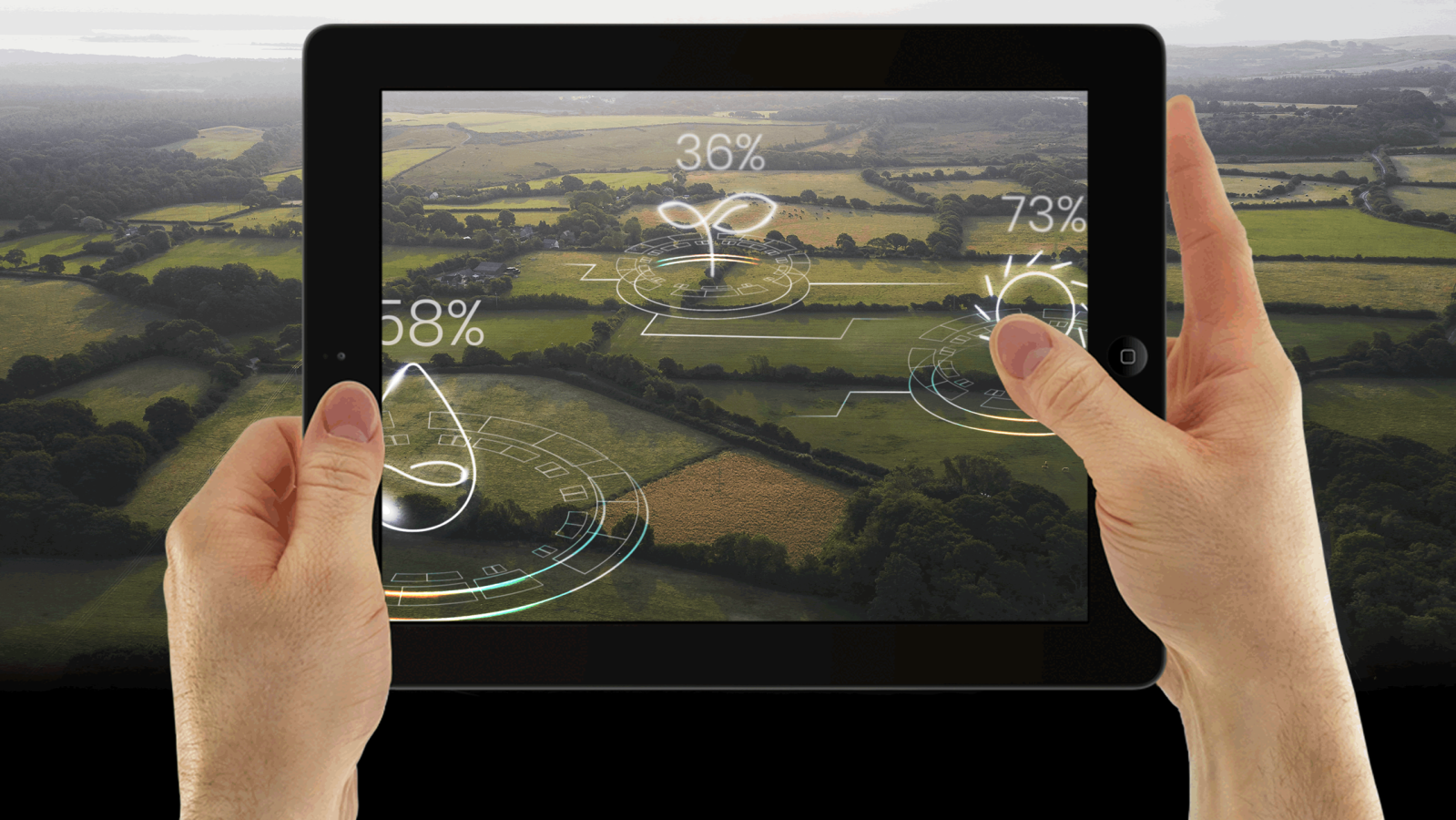The research project “Dataskop” develops mobile data visualisation methods integrated into real-life surroundings to combine data displayed in the physical environment and abstract data representation. In other words: the project renders invisible environmental data visible to us humans. The focus was placed on outdoor use, away from well-developed digital infrastructure, i.e. in rural areas. Location-based environmental data are captured by sensors and subsequently displayed. Potential application areas are disaster protection, agriculture, viticulture, drinking water supply, and winter road maintenance.
Wolfgang Aigner, Head of the Institute of Creative Media Technologies (IC\M/T) of the St. Pölten UAS heads the project, which has involved research and collaboration both between various research groups and across institutional boundaries since the middle of 2020.
This project is made possible by the fact that Lower Austrian Higher Education institutions have expertise across the entire technology chain from the collection of data (sensor technology, data infrastructure - FOTEC and Danube University Krems) their processing (visualization, IT Security - St. Pölten University of Applied Sciences) and their use (Business Value Creation, Business Process Transformation - IMC University of Applied Sciences Krems).
Project Outline
Increased data availability: Better understanding through visualization
The amount and complexity of available data is constantly increasing. This wealth of data opens up new possibilities for technical progress and economic success. Since data per se are not visible to humans and are therefore difficult to integrate into the environment of problem solving, data visualization is needed. This means transforming data into images in order to make the information easily accessible. Generally, however, such visualizations are completely independent of their physical environment and are not designed to make data visible and usable in the real world environment.
Sensor data
In addition to classic business and administrative data, sensor data have enormously gained importance in recent years. This means for example data on soil or air quality, chemical composition, temperature, water level, humidity or position coordinates. Acquiring and especially transmitting and consolidating these measurements depend on technical infrastructures such as power supply and (radio) network coverage. In rural areas, however, these technical prerequisites are often not or only insufficiently available. Promising technologies for solving these problems are so-called "Low-Power Wide Area Networks" (LPWAN), which can record and transmit sensor data over long distances with extremely low energy consumption.
Project content
"Dataskop" breaks new scientific ground developing mobile, situational embedded data visualization methods to combine physical environmental and abstract data representation. Proof-of-concept prototypes for low-cost LPWAN kits are developed, which can be used to construct outdoor sensor networks. In order to protect the data transmission in the networks from manipulation and abuse, IT security methods are developed, tested and prototypically implemented. An open data management platform is developed to collect sensor data and serve as standardized interface. In addition, economic models are being developed. Through this holistic and interdisciplinary approach, the vision of a Sensor-Based Data Economy in Lower Austria can be realized, leading to Smart Rural Areas.
We make invisible data visible

Anna Blasinger (cc211018)
Dawid Lewandowski (mt201076)
• Gerhard Kormann-Hainzl (gerhard.kormann@fh-krems.ac.at)
• Rubén Ruiz Torrubiano (ruben.ruiz@fh-krems.ac.at)
UWK:
• Albert Treytl (albert.treytl@donau-uni.ac.at)
• Thomas Bigler (thomas.bigler@donau-uni.ac.at)
FOTEC:
• Michael Kollegger (kollegger@fotec.at)
• Markus Hohlagschwandtner (hohlagschwandtner@fotec.at)
• Kevin Janisch (janisch@fotec.at)
• Matthias Mandl (mandl@fotec.at)
• Georg Wernitznig (wernitznig@fotec.at)
• Michael Ploy (ploy@fotec.at)
- University of Applied Sciences Krems
- FOTEC Forschungs- und Technologietransfer GmbH
- University for Continuing Education Krems, Department for Integrated Sensor Systems (DISS)
